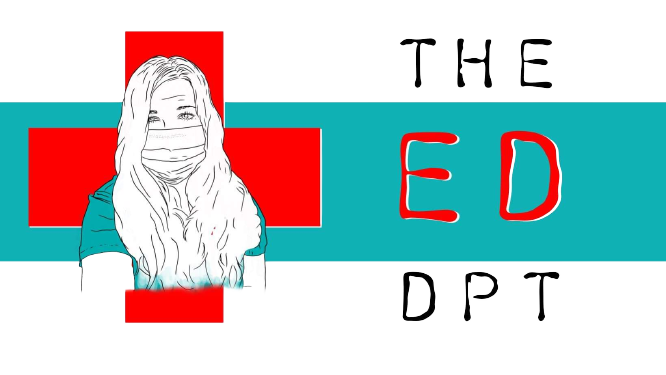Today, I’m excited to share a recent conversation I had on our podcast “In the ED Now” with Dr. Drew Contreras, a seasoned physical therapist and the Vice President of Clinical Integration and Innovation at the American Physical Therapy Association (APTA). Our discussion delved into his unique role and the future of physical therapy.
Meet Dr. Drew Contreras

Dr. Contreras is a PT by trade, with a wealth of experience as a military physical therapist and a current role that involves steering the ship in the dynamic landscape of physical therapy. As the VP of Clinical Integration and Innovation at APTA, Dr. Contreras is tasked with identifying trends that could positively impact the profession and ensuring that these advancements find their way into clinical practice. On the other hand, he remains a hands-on clinician, serving individuals in the DC area with specific scheduling and security concerns.
Looking Forward and Embracing Change
In our conversation, Dr. Contreras emphasized the importance of forward-thinking in physical therapy. He highlighted the need to identify upcoming trends, separating the beneficial from the detrimental, and steering the profession toward a future that aligns with patient needs and industry advancements.
“My job is to help find those things [positive trends] and get them into clinical practice. And if we are doing stupid things, terrible things, my job is to try and keep us from doing those things and get them out of clinical practice.”
This proactive approach requires challenging conversations and a willingness to adapt, ensuring that the profession continues to evolve in a way that best serves patients.
Practicing at the Top of Our Scope
A significant portion of our conversation revolved around the concept of practicing at the top of our scope. Dr. Contreras, drawing from his military PT background, highlighted the benefits of expanding our scope to manage complex musculoskeletal issues. He emphasized that while some caution is warranted, this expanded role falls well within the capabilities of a licensed PT. He shared insights into managing patients at a higher level, including ordering imaging studies and collaborating with other specialties when necessary.
“I think if we’re being honest with each other, that this is really where the future of being a PT kind of resides as far as in that outpatient musculoskeletal role is kind of sitting in that upper level management of patients and conditions.”
Shifting Towards Preventive Care
Our conversation touched upon the shift towards preventive care and the pivotal role physical therapists can play in promoting healthy lifestyle behaviors. Dr. Contreras emphasized the need for PTs to move beyond the traditional disease model and focus on holistic patient management, addressing not only immediate concerns but also advocating for overall well-being.
“The one thing you can never deny as PTs is that we get the luxury of spending a lot of time with people. You’re perfectly suited for it. It’s just, you have to accept though, you’re a doctoring profession, and that’s part of it.”
The Value of Physical Therapy
Dr. Contreras discussed the APTA’s report on cost savings related to various diagnoses, highlighting the tangible value of physical therapy. He urged clinicians to go beyond traditional evidence-based approaches and engage with benefit managers, elected officials, and payers using easily digestible information that demonstrates the cost-effectiveness of physical therapy.
“When people think that our services are only valuable in the CMS slide show scale of reimbursement for eight-minute CPT codes, that’s a failure on your part to understand the value of what you do as a clinician and what you provide.”
Innovation and Adaptability in the ED
Lastly, our conversation touched on the role of physical therapists in emergency departments (EDs). Dr. Contreras commended those working in such high-pressure environments and highlighted the profession’s unique problem-solving abilities. He emphasized the need for PTs to engage in opportunities outside traditional clinical settings, showcasing the value they bring in crisis situations and disaster response.
Final Thoughts
As we concluded our conversation, Dr. Contreras left us with a powerful parting thought:
“Physical therapists must embrace their role as a doctoring profession, working at the highest level of their scope and accepting the responsibility that comes with it.”
I invite you to watch the full conversation, and I’m eager to hear your thoughts on the future of physical therapy and how we can collectively shape it.
Thank you for your time, and I look forward to further engaging with this incredible community!
Best,
Dr. Rebekah Griffith, the ED DPT


